You are here
New Releases
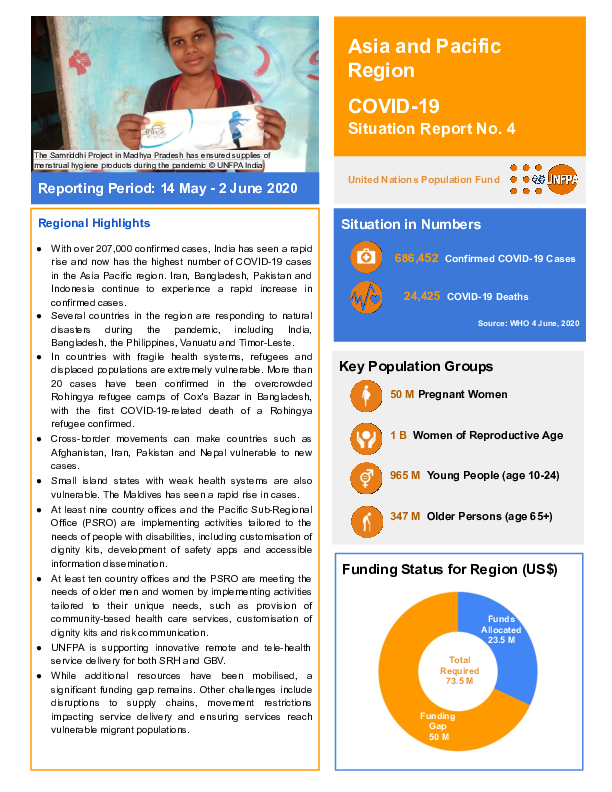
COVID-19 Situation Report No. 4 for UNFPA Asia and Pacific
With over 207,000 confirmed cases, India has seen a rapid rise and now has the highest number of COVID-19 cases in the Asia Pacific region. Iran, Bangladesh, Pakistan and Indonesia continue to experience a rapid increase in confirmed cases.
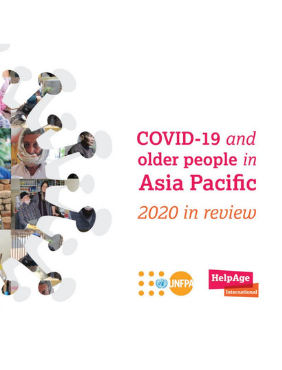
HelpAge & UNFPA: Monitoring COVID-19 impact on older persons
The COVID-19 pandemic and its consequences pose significant threats to the wellbeing and dignity of older persons across the Asia Pacific region. The pandemic will have far-reaching and long-lasting impacts in unpredictable ways. Monitoring the impacts of COVID-19 on older persons is therefore essential to inform policy makers and the broader society in order to ensure responses are inclusive of older persons. Throughout 2020, HelpAge and UNFPA, therefore, monitored the situation of older people across the region and in a sample of target countries.

Accelerating the Promise: The Report on the Nairobi Summit on ICPD25
This report captures the unique essence, substance and outcomes of the Nairobi Summit on ICPD25: Accelerating the Promise, co-convened by the governments of Kenya, Denmark and UNFPA on 12-14 November, 2019.
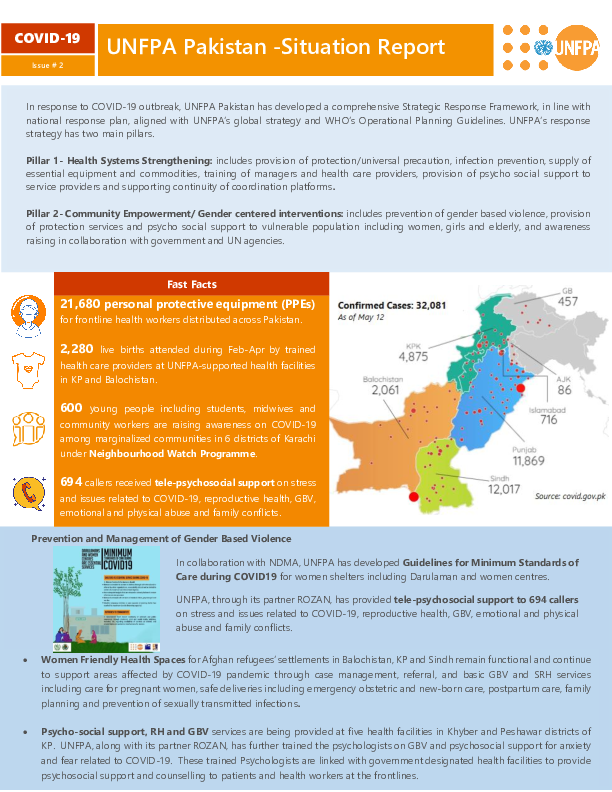
UNFPA Pakistan - COVID-19 Situation Report 2
In response to the COVID-19 pandemic, UNFPA Pakistan has developed a comprehensive Strategic Response Framework aligned with UNFPA’s global strategy and WHO’s Operational Planning Guidelines. UNFPA’s response strategy has two main pillars: health system strengthening and community empowerment, including gender-centred interventions. Read UNFPA Pakistan's latest Situation Report for more information.
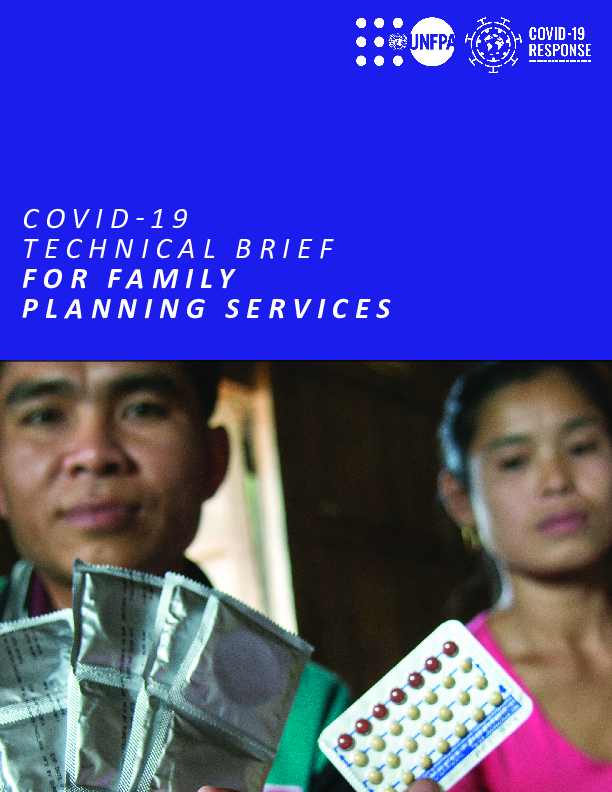
COVID-19 Technical Brief for Family Planning Services
Sexual and reproductive health and reproductive rights are fundamental to achieving the Sustainable Development Goals and upholding human rights. During these unprecedented times, it is crucial to ensure that there is no regression of the progress made.This technical brief analyzes the possible consequences of COVID-19 on the rights of individuals and couples to family planning and provides guidance to countries on the continued commitment and investment in family planning.
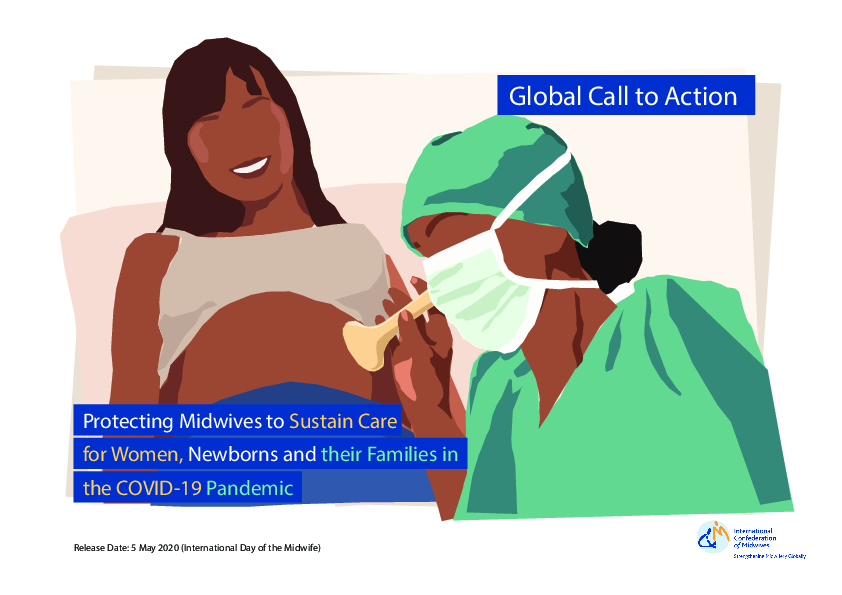
Protecting Midwives to Sustain Care for Women, Newborns and their Families in the COVID-19 Pandemic
We are facing a global health crisis: health systems are being tested, as shortages of both staff and resources place intense pressure on services. As the world struggles to get COVID-19 under control, our global health workforce is under increasing strain – and woman-centred, midwifery-led care is more at risk than ever. This publication provides clear actions to ensure the continuation of midwife-led care, and the protection of maternal health and rights.
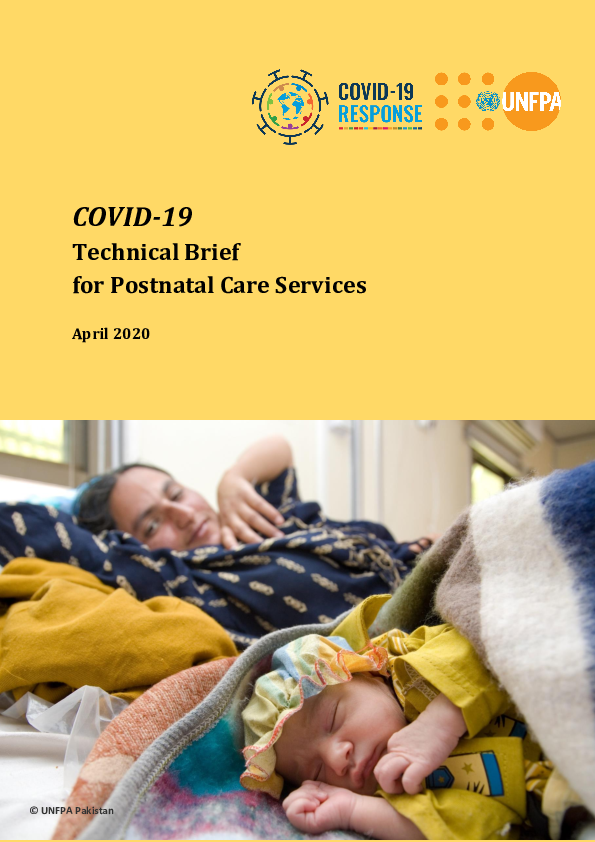
COVID-19 Technical Brief for Postnatal Care Services
The overarching aim of this guidance is to ensure maternity care providers can deliver respectful and individualised care services that promote the safety of women, babies, families and health professionals during the COVID-19 pandemic.
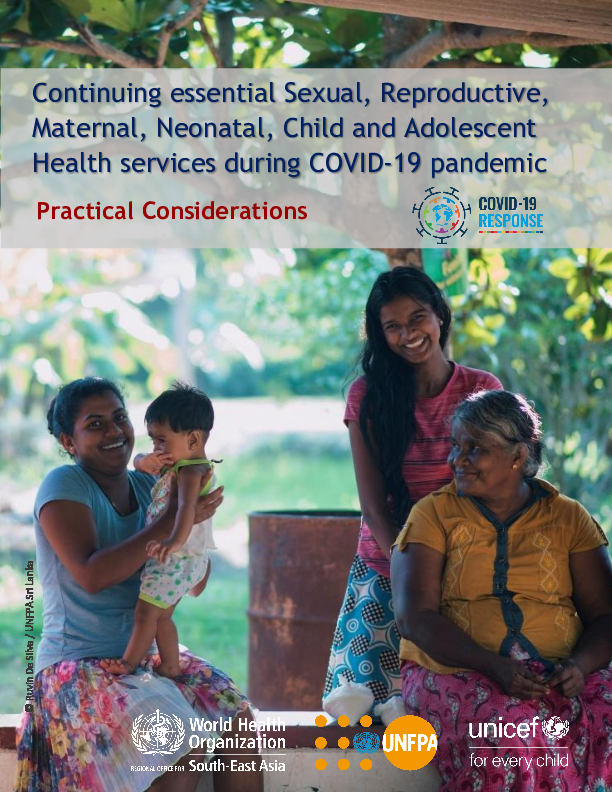
Continuing essential Sexual, Reproductive, Maternal, Neonatal, Child and Adolescent Health services during COVID-19: Regional Guidance
This document builds upon the previous Regional Guidance published on 17 April 2020, which provided high-level guidance to countries for continuing good quality and equitable sexual, reproductive, maternal, newborn, child, and adolescent health (SRMNCAH) services during the COVID-19 pandemic. As such, both documents should be read together.
Continuing essential Sexual, Reproductive, Maternal, Neonatal, Child and Adolescent Health services during COVID-19 pandemic
This operational guidance for South and South-East Asia and Pacific regions has been prepared to help countries prepare a continuity plan for maintaining good quality and equitable sexual, reproductive, maternal, newborn, child, and adolescent health services during the COVID-19 pandemic.
It is commonly observed that response to a pandemic stresses health systems and poses the risk of disruption in the provision and use of ongoing health services that are essential for population groups that are particularly vulnerable. This document builds upon the global guidance issued by WHO and UN agencies and encourages countries to adapt the guidance, based on local conditions to sustain essential services while implementing prevention, infection control and curative services for COVID-19.
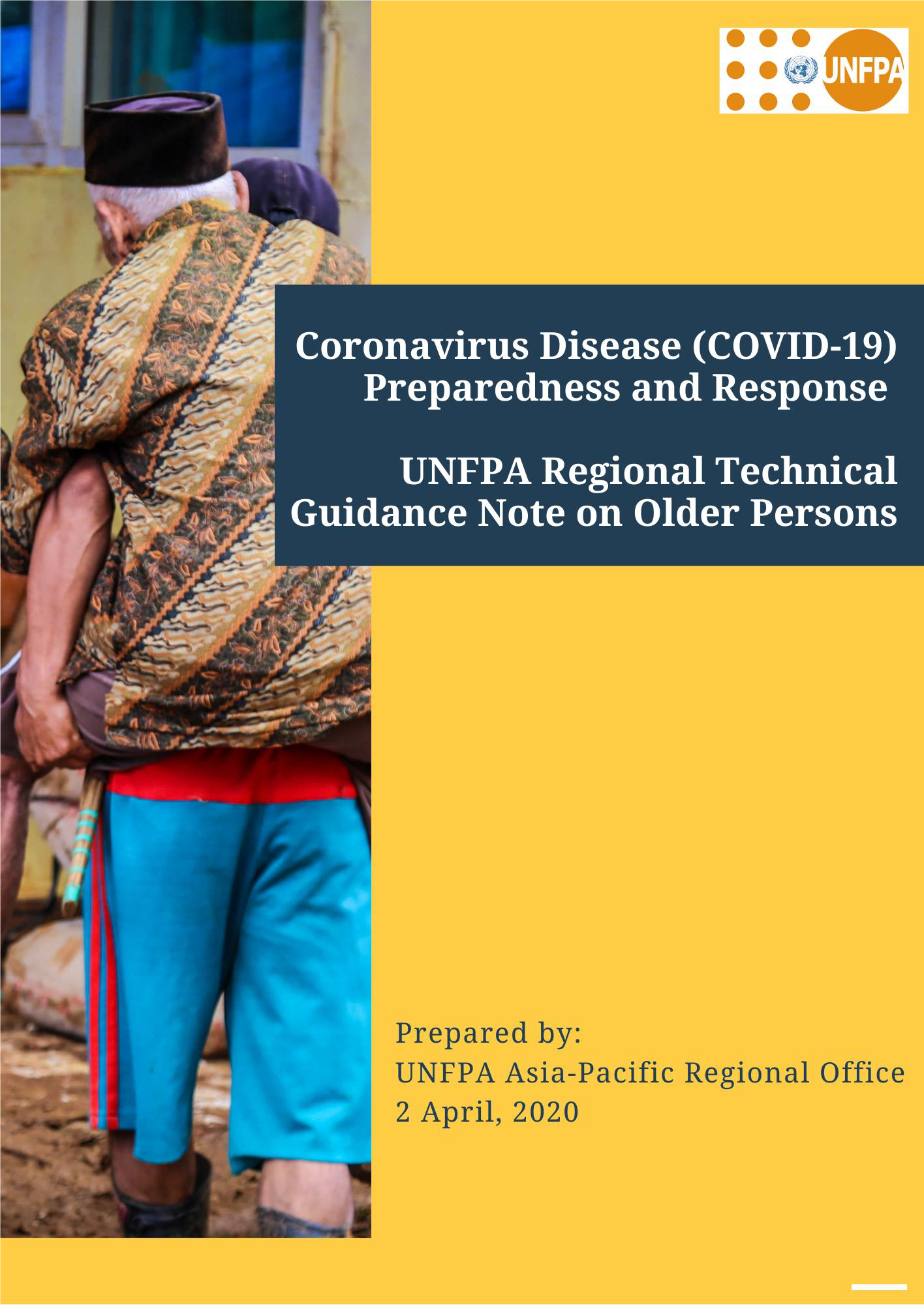
UNFPA COVID-19 Regional Technical Guidance on Older Persons
This UNFPA regional technical guidance note provides guidance on older persons, health workers, and caregivers in the contexts of COVID-19 to effectively support each member state and work with other partners in preparing for and responding to the pandemic.